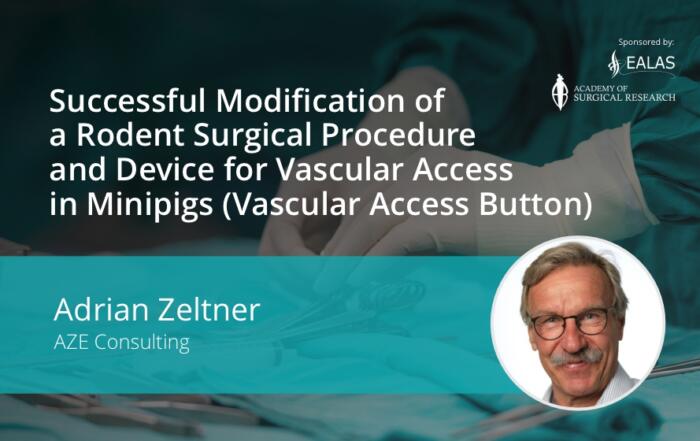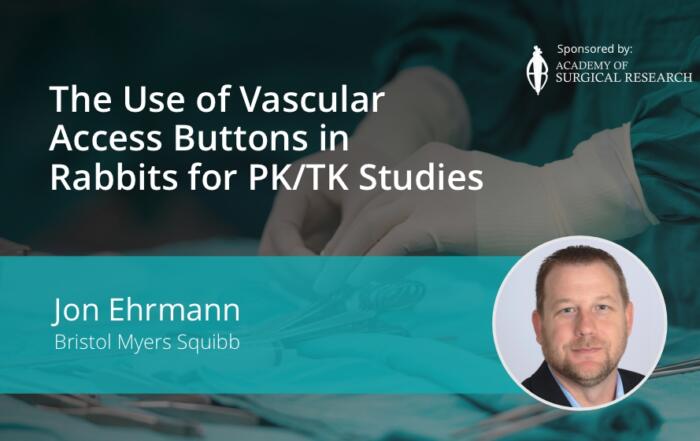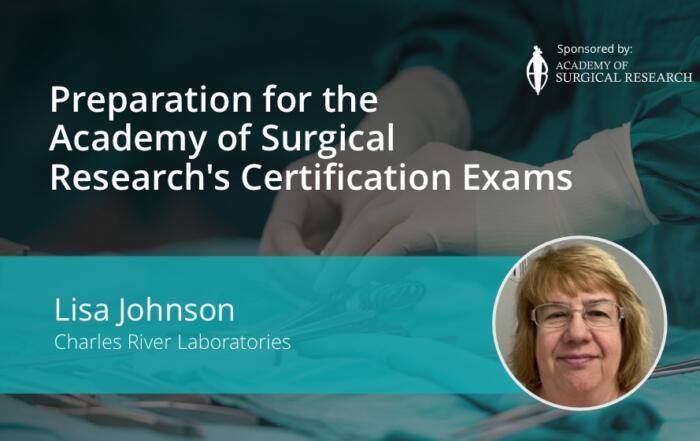In this webinar, Melanie Graham, MPH, PhD highlights the benefits and reliability of using vascular access ports (VAPs) in animal models.
Animals in experimental setting often require repeated and prolonged vascular access for indications including blood sampling or administration of fluids, blood products, medication, or other therapies. A vascular access approach should be tailored to experimental or clinical use, meeting the needs of the individual animal, such that benefits outweigh risks with optimal device and placement technique is based on the specific anatomic sites and planned use.
Totally implanted vascular access ports (VAPs) enable reliable access for frequent sample collection and/or intravenous therapies, minimize discomfort, and minimize physiologic changes which can confound biologic data and drug responses. VAPs facilitate species’ typical behavior and social group activities and are compatible with animal enrichment programs that include play and swim since there are no externalized components. VAPs are typically used long-term and demonstrate excellent durability with high patency and low complication rates over time, presenting a safe and dependable vascular access approach.
Key Topics Include:
- Indications and advantages of portal vascular access
- Surgical approach and technique
- Post operative care and management
Presenters
Professor and Goodale Chair in Minimally Invasive Surgery
University of Minnesota






